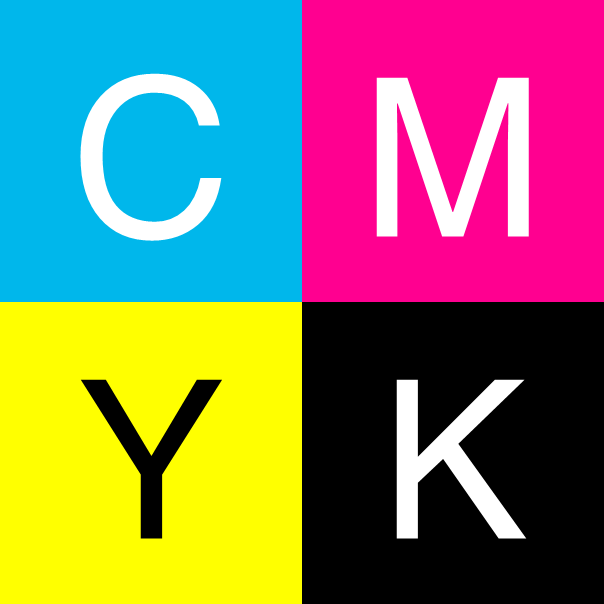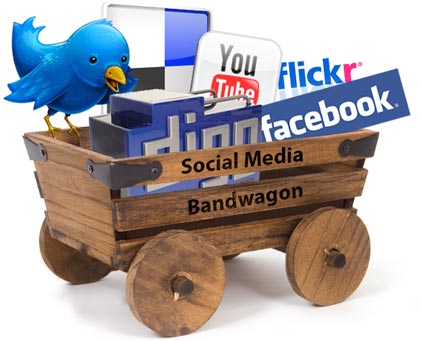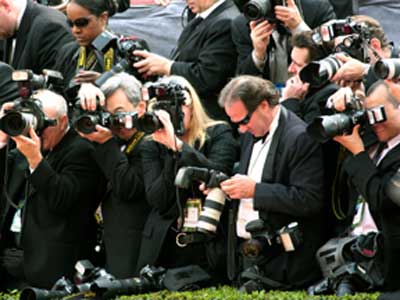OH YOU’RE IN COMMUNICATIONS…SO WHAT DO YOU DO EXACTLY?
The one and only reason I wish I were not in the field of Communications is because it’s not one of those one-word answer job descriptions like doctor, lawyer, accountant.
The conversations tend to go something like this:
Inquirer: “So what do you do?”
Me: “I work in communications,” I said and then brace myself for the next never-fail question.
Inquirer: “Soooo what does that mean exactly? Do you like communicate with people.”
What I want to say: Ummm no. Communications does not mean that I talk to people for a living. Every job involves communicating.
What I actually say: “Communications involves a lot of things. Communicating with different people is part of it but I work on websites, write news stories, take press inquiries, produce brochures and stuff….”
Communications is a hard job to explain and every company or organization has different tasks assigned to its communications person or team. Places that have a whole communications team tend to have people who are more specialized in one area such as website content management, or news writing, or media management, or print production. But organizations that don’t have the budget for a whole team will hire a “Communications Officer”, a “Communications Coordinator,” or a “Communications Assistant” who will do everything that is thrown at them.
So if you’ve ever found yourself wondering “what is communications exactly” or you’ve been considered a career in the field, this post is for you!
Jobs that I do in my current communications role and have done in past communications positions include:
 Print production
Print production
This is one of my favorite communication jobs. Basically the person is a Project Manager from requesting quotes from design companies, managing the writer(s), editor(s), designer, manager (boss who signs off), and the printer. The Production Editor takes an unformatted unedited Word Document and leads it through the transformation into a beautiful glossy brochure, booklet, magazine, report, or book.
Being an organized person and a task manager, I loved the challenge of keeping everyone on schedule, which is very important in print production because usually materials are being prepared for a campaign or event, which always have an unmoving deadline. I also get to use my proofreading skills, eye for detail and creativity to change things and move things around to create the most attractive professional product possible.
Graphic Design
Depending on where a communications professional’s skills are at, graphic design might come into play. For example, working for non-profit organizations and government-funded institutions, there isn’t usually a large budget to pay the professional designers to design smaller things like posters.
Being a creative person with little formal design training (i.e. no format art classes, only software training), I experimented and taught myself how to design items such as three-fold brochures, event programs, and posters. Doing this “in-house” as the communication folk say, saves a lot of money because it is done by a salaried staff member rather than contracted to a external professional. Oh and when the budget permits, the communications staff manages contracted employees.
Writing/editing/proofreading
Although each of these are VERY different roles, I group these all into one category because they all fall under dealing with text. Depending again on where the communications professional is working, they will do one or all of these. All the communications positions I have had involve a lot of writing, including news stories for the website and e-newsletters, marketing copy, and website content. I’ve also done a lot of editing for text written by non-native English speakers and for fact-checking.
Proofreading is a given. There no single communication that should be made public, even if it’s just an email, that has not first been proofread. Proofreading is actually one of the single most important roles of a communications professional because nothing makes a company or organization look more unprofessional than preventable errors.
Website management
I will argue time and time again that website content management is a specialized skill. There are many content management systems (CMS) out there that are user friendly and people can learn quite easily. However, it takes a true Web Master to know the in’s and out’s of a certain system or multiple systems at that. Making sure that website content is user-friendly, SEO-friendly, and even formatted correctly takes some practice and skill and a lot of patience because CMS’s definitely go through periods where they don’t cooperate and cause inconveniences.
There are also times when businesses want to re-design their websites and/or move to a different CMS. An experienced Web Master/Communications Expert can manage this project smoothly. A web editor will have a very hard time communicating with the management team, the computer programers, and the designers. Get an experienced professional to manage this huge project!
On multiple job postings, I’ve seen: experience with a certain CMS or HTML knowledge is an asset. If you’re looking for a website manager or editor, they need to have experience with one or more CMS, but if they don’t know how to use the particular system used by your company/organization, an experience website manager/editor can quickly learn. Someone who knows your CMS but has little website management experience will often times not be the best choice. HTML knowledge is an asset, but with the user-friendly CMS nowadays, I think HTML isn’t necessary.
Social media
I would advise businesses to stay away from “social media experts”. Based on personal experience many regular joe’s call themselves “social media experts” because they have accounts on all platforms and know how to use them. Sure they are experts in social media in general because they can tell you everything you how to set up an account and how to post on them. HOWEVER, “social media experts” are not experts in communications.
Communications experts know not only HOW to use social media, but will determine WHICH social media platforms are best suited for the company or organizations goals, rather than jumping on all of the platforms, and will know WHAT content to post on these networks and WHO to target.
I’ve seen many companies and business flock to Twitter and Facebook because they are two or the most widely used networks, but they may not fit with their communications or marketing goals. A communications professional allows businesses to work smarter not harder.
Marketing
Communications professionals will sometimes be involved with marketing campaigns. For example, they will ensure consistent branding, help write marketing copy, and have a good idea of what will appeal to the targeted audience(s).
Communications professionals may not have the skills for “sales” as professional marketers do, but the communicators can definitely help marketers sell by their valuable understanding of the power of language, communication channels, and how to target audiences.
In my current position, I also do a lot of in-person and verbal marketing for my department because opportunities present themselves this way. It’s not technically part of my job, but I utilize my position as a communicator to market wherever I can. I compare this type of communicating to “ambassadorship”.
Press/Media management
Like marketing, a communications professional can be involved in press or media management depending on where they are working. I think dealing with press inquiries, pitching to the press, writing press releases, and collecting press cuttings are all specific skills often best suited for trained journalists. I think having a separate person specialized in marketing and another in press management are important. However, in businesses that cannot afford to have one person for each of these roles, the duties often fall to the communications person.
Event planning
Event planning involves communications by default. There are invitations to be written, designed, and sent out. Advertising through the website and any other channels, such as posters.
Sometimes again in places where a whole team or even one specialized person in event planning is not feasible, a communications person will do this job. Again event planning requires a more unique skill-set and is better left to a trained or experienced event planner. I compare it to project management again because you have to organize multiple parties and keep everyone within the deadline.
In Summary
Communications is a multi-facted dynamic position and each company or organization will define a communications position to fit it’s own needs. As a communicator, the more diverse skills you can develop the better, and if you can become specialized in 1-3 of the aspects listed above you are basically a “Jack of All Trades” and are highly valuable to a potential employer.
Must-have qualities for success in the communications field:
- Eye for detail
- Deadline oriented
- Multi-tasker
- People person
- Technical aptitude



